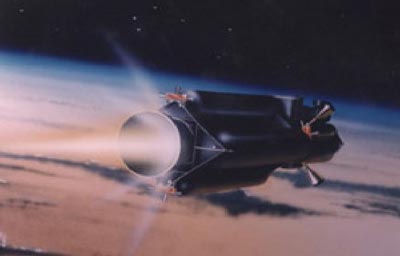Letter: the weaponization of spaceby Yousaf Butt
|
| Since the US has the greatest stake in space, it behooves the administration to keep space free of these weapons that are offensively potent yet defensively ineffective. |
This is because they are advocated on the basis of somehow “protecting” US satellites. Whereas space weapons would have an undeniable offensive potential, they will have no, or possibly very minor, defensive ability. This is because satellites are inherently fragile and move in predictable orbits and have no awareness of their surroundings. “Bodyguard” satellites that could shadow high-value US space assets cannot provide an “infinite” defense against ground based ASATs, which can keep taking shots at high-value US satellites until they destroy them.
Since the US has the greatest stake in space, it behooves the administration to keep space free of these weapons that are offensively potent yet defensively ineffective. Space weapons would be disproportionately detrimental to America’s space security.
Although it can be argued that US should develop these offensive space weapons as a deterrent, this argument is disingenuous: the US possesses plenty of deterrent force already to properly punish any nation interfering with our satellites.
In light of the recent Chinese ASAT test, what is most urgently needed is an international agreement banning space weaponry. If such an agreement were hammered out, most of the “space-war fearmongers” would probably not be opposed to a low level of funding for space weapons research.
Lastly, the Union of Concerned Scientists, where I was a research fellow for two years, works to further US and global security and their positions are science-based. They comment, for the most part, on US policy as they are based in the US and strive to influence US policy. However, when appropriate, they do comment on other nations’ behaviors—it is telling that they properly condemned the recent Chinese ASAT test.
